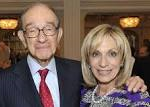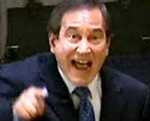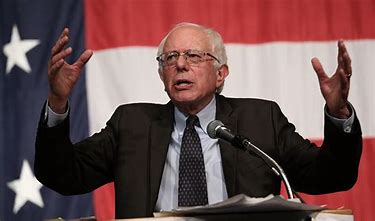“I am running for president, but this won’t be easy. We’ll be taking on the entire financial establishment and a corporate media who have long dismissed us and our ideas as ‘radical’ and ‘fringe.’”
–Bernie Sanders (Ind-VT) and Democratic Presidential Candidate
Bernie Sanders is a clear, direct thinker and his statement above is succinct and accurate.
The established financial services industry and the corporate media have a clear enemy in the progressive message that is being advanced in a variety of forms and degrees by a number of Democratic presidential candidates.
Whether these messages come from Bernie Sanders, Elizabeth Warren, Kamala Harris, Sherrod Brown or Tulsi Gabbard, the well-funded reactions from corporate and Republican forces will be vehement, slanted, fabricated, intimidating and incessant. After all, history shows that people and corporations in power never give up their financial, social and political privileges without a big fight.
So with that in mind, here is a summary of what the opposition to the progressive message will unleash:
More Attacks from the Financial Services Industry
The financial services lobby is one of the most powerful in Washington. It has moved to control the SEC and any other federal and state financial regulatory agency (It will surprise many that states have the authority to penalize and investigate intra-state financial business, but the state regulatory record is poor.) The financial groups and their lobbyists promote the agenda of global banks and any other investment firm that can pay their fees. These organizations have been doing this since the creation of the SEC in 1934.

To combat the adoption of any pro-investor protections, financial services lobbyists, including those representing mutual fund companies, hedge funds, insurance companies, and investment banks, regularly conduct lobbying campaigns to protect their interests.
Their efforts are so successful that according to Open Secrets, “the financial sector is far and away the largest source of campaign contributions to federal candidates and parties, with insurance companies, securities and investment firms, real estate interests and commercial banks providing the bulk of that money.”
In a capitalist system, those with the power use it unsparingly to crush opponents. This means many financial services lobbying groups work against investors. From 1998 to 2008, the financial services industry spent $1.7 billion on campaign contributions and $5 billion on lobbying expenses. During this period, the securities industry alone spent $1.7 billion on campaign contributions and $3.4 billion on lobbying. The insurance industry led the lobbying effort by spending $1 billion, largely to repeal any reforms passed since the New Deal. To put this into perspective, when these campaign contributions are compared to other industries during the period starting in 1989, contributions from the financial services industry alone are greater than the contributions from the energy, health care, defense and telecommunications industries combined.
Here is a list of financial services groups that publicly say they defend investors, but have a radically different message when it comes to repealing pro-investors regulations and agencies. These groups have all opposed pro-investor initiatives in the past. They will all be mobilized against any progressive candidate:
Securities Industry and Financial Markets Association (SIFMA)
The American Bankers Association (ABA)
American Council of Life Insurers (ACLI)
American Retirement Association
Association for Advanced Life Underwriting (AALU)
Bond Dealers of America (BDA)
Financial Services Institute (FSI),
Financial Services Roundtable (FSR)
Investment Company Institute (ICI)
Investment Program Association (IPA)
Insured Retirement Institute (IRI)
National Association for Fixed Income Annuities (NAFA)
National Association of Insurance and Financial Advisors (NAIFA)
The National Association of Real Estate Investment Trusts (NAREIT)
The Real Estate Roundtable
The U.S. Chamber of Commerce
The Coalition to Protect Retirement Security and Choice
Securities Industry and Financial Markets Association
National Association of Insurance and Financial Advisors,
The Financial Services Roundtable
Financial Services Institute
American Council of Life Insurers
The Investment Company Institute (ICI)
More Attacks from the Corporate Media
The attacks against the progressive message will come from two main sources: political and financial/market reporters.
In broadcast financial journalism where CNBC, FOX and to a lesser degree, MSNBC, have on-air anchors and reporters who unabashedly push conservative, Republican, neoliberal, free-market economics exclusively into straight financial reporting. At times, viewers are being victimized by a handful of ideologue political activists posing as financial journalists.
When this happens, financial journalism becomes tainted. This affects the reporting and the credibility of entire networks. Worse, it presents incomplete or distorted news to unsuspecting viewer-investors. It also perpetuates the stigma of the “corporate media” as a real threat to objective journalism that seeks to push its own special agenda of pro-corporate, conservative values.
The Worst Offenders
- CNBC’s economics reporter Larry Kudlow, now a White House advisor, said on-air that there were no victims in the historic LIBOR price fixing scandal. This price fixing event was one of the largest and longest frauds committed on millions of people who relied on LIBOR to peg their short- and long-term borrowing for personal and commercial loans on everything houses and autos to commercial property and airplanes. Kudlow’s ridiculous statement smacks of an effort to spread pure intentional misinformation.
- CNBC’s Joe Kiernan said he doubted that global warming was a scientific fact. Kiernen said that climate change and the higher temperatures evident in January 2015 were likely not a result of increased Co2, but something else. “It’s almost like witchcraft,” Kiernen said. “In the middle ages it was witchcraft. You would have attributed adverse weather events to witchcraft.”
- MSNBC’s Chuck Todd, who has proven to be a wimpy interviewer, tried to challenge then-candidate Bernie Sanders opinion that Wall Street’s business model is based on fraud. Todd missed the entire point of Sanders’ argument when Todd said “It seems to me if you (Sanders) believe it is a fraud, you would not like to see money invested in something based on a fraud.” Todd knows that average investors have no choice but to invest in Wall Street, but he missed the point that unregulated capitalism is what cause the 2016 recession and Wall Street spends billions on lobbying to preserve its preferred regulatory position.

The Tea Part Genius - CNBC’s Rick Santelli provided one of the best examples of misguided pro-corporate thinking when he delivered his famous rant on the floor of the Chicago Mercantile Exchange in February 2009 that is widely credited with starting the Tea Party.
Santelli, an astute fixed income and currency reporter who does a great job of explaining cross-currency rates and changes in the yield curve, delivered his misguided interpretation about the causes of the 2007 financial crash. Referring to the TARP and other bank bailout programs, Santelli asked a group of floor traders (who worked in a largely unregulated market) if they wanted to make mortgage payments for homeowners who were now unable to make their mortgage payments. This loaded question got the predictable response.
There certainly are other examples on display from other very-well compensated, pro-corporate on-air reporters, such as Stuart Varney, Lou Dobbs, Neil Cavuto, and Maria Bartiromo.
However, the bigger issue for journalism professionals and the public is what made mainstream financial media remain unabashed boosters of the status quo and the infallibility of capitalism?
Reasons to Deceive
There are a few reasons for the emergence of pro-corporate financial journalism:
- Cable TV is big business. Straight reporting of financial news is boring, so it uses sensationalism to drive ratings. Unless financial events are politicized and demonized as being un-American (pro-regulation), anti-growth (proposals to raise taxes) or anti-corporate (advocating single-payer health care or anti-trade agreement), ratings can suffer.
- The rise of neo-liberalism or the invincibility of a market-dominated economy. This is the prevailing pro-corporate philosophy, coupled with Milton Friedman monetarism and a misreading of Adam Smith’s laissez faire capitalism. Neo-liberal economic positions are repeated without question in daily financial TV journalism and this shows a reliance on incomplete economic analysis. Economists, such as Bill White of the Bank of International Settlements or Hyman Minsky, who both offered good explanations for the 2007 recession, were dismissed by Federal Reserve Board Chairman Alan Greenspan as outsiders since their views did not coincide with prevailing Fed, neoliberal thought. When financial journalists systematically dismiss alternative economic explanations, they should be called propagandists.
- The consolidated corporate media has more control over financial news than cultural (social) programming. When people don’t know about alternative political-economic systems, the pattern of excessive executive compensation, trade agreements that export jobs to other nations, they rely on false beliefs shaped by others pushing a political versus a journalistic-educational agenda. For example, when viewers do not know the benefits of a single-payer health care system (often called “socialized medicine” by FOX News), or the real meaning of “too big to fail banks,” their opinions can be shaped by ideologue financial commentators.
- Corporate culture shapes opinions. It would be difficult to be an iconoclast at CNBC or FOX, and this only buttresses the prevailing thought-culture. The on-air pro-corporatists are well-paid: Maria Bartiromo is paid a $6 million salary, while Jim Cramer has a net worth of $100 million), so they can virtually say anything.
- The biggest propagandists are also the best paid. Sean Hannity (who never graduated college) is paid $40 million and has a net worth of $220 million. Rush Limbaugh (who also never graduated college) is paid $70 million annually and has a net worth of $590 million. He also owns shares in some of the radio stations that carry his program. Even Glenn Beck (who also never attended college) has a net worth of $250 million and a salary of $20 million. All prove that broadcasting hatred is good business.
Be Prepared for the Attacks
So Senator Sanders is correct when he says “We’ll be taking on the entire financial establishment and a corporate media who have long dismissed us and our ideas as ‘radical’ and ‘fringe.’” As this is being written, industry lobbyists and Republican attack groups are having meetings and raising more money than Senator Sanders will ever be able to tap. These groups have been destroying opposition movements for decades using almost any means possible. So expect the worst types of attacks. Then, become a participant, not an observer. This may be the Last Stand for America’s middle class to survive another generation without taking a huge loss in its living standard and liberties.











